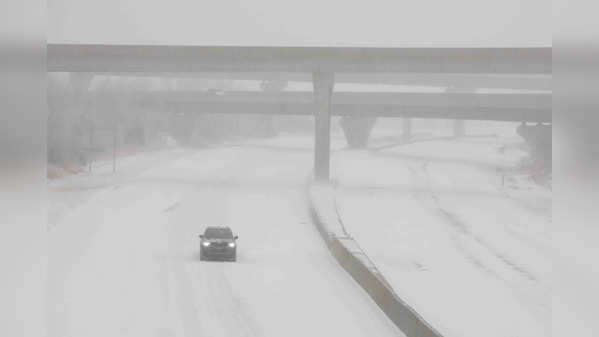To prevent needless loss of life during blizzards, decisions about road closures and evacuations should be made well in advance based on predefined rules. This approach reduces uncertainty, eliminates hesitation, and ensures that necessary actions are taken swiftly and decisively when disaster strikes.
Blizzards: Deadly and Unpredictable
Blizzards, like hurricanes, are unstoppable forces that threaten everything in their path. When blizzards strike, they can transform the world into a dangerous, unfamiliar landscape, where snow, cold, and blinding winds create deadly conditions. The key to saving lives is early, decisive decision-making—specifically, when to close roads before the storm intensifies. In cities like Buffalo, where blizzards bring fatal risks, preemptive action can save countless lives.
The Importance of Early Decision-Making
Blizzards don’t just impact the storm's immediate vicinity; their effects compound, leading to further crises. Roads become impassable, fuel becomes scarce, and vital services—like emergency crews and food deliveries—are delayed for days. If snowplows are unable to clear roads, the ripple effect can stretch beyond the storm itself, making it even harder to address the crisis afterward.
One of the earliest, most crucial decisions that must be made is when to close roads. Closing them early ensures emergency services remain able to act and snowplows can work without interference from stranded vehicles. Additionally, it keeps people safe by preventing them from driving into hazardous conditions. In Buffalo, the failure to make this decision early contributed to the loss of dozens of lives during the December 2022 blizzard.
The Dangers of Hesitation
In Buffalo, many deaths were avoidable if the right decisions had been made earlier. Stranded drivers, people who couldn’t reach medical help, and residents left without power all suffered due to a lack of preemptive action. The difficult decision to close roads is made even harder by the fear of getting it wrong. If officials had closed roads prematurely and the storm shifted, they could face backlash for disrupting the economy and holiday plans. This fear can delay necessary action and exacerbate the disaster's toll.
The Solution: Depersonalize the Decision-Making Process
The solution to this problem is to depersonalize emergency decisions by setting clear, predefined rules for action. Rather than leaving these high-stakes choices to be made at the moment of crisis, we should establish specific guidelines based on reliable data. For example, if a blizzard of a certain severity and probability is predicted, a rule could mandate the closure of roads a set number of hours before the storm’s arrival.
Once such rules are in place, decision-makers are no longer responsible for the outcomes—it's the rule that governs. If the storm veers off course and causes no damage, there’s no blame on those who followed the established protocol. This system removes the emotional weight of the decision and ensures that the necessary actions are taken without hesitation.
Everyone Must Be On Board
This system requires collective participation. It’s not just about officials making the right call; it’s about the community recognizing the importance of these rules and supporting them. Everyone—officials, citizens, and emergency responders—must understand that these protocols exist to protect lives, and that they must be followed for the system to work effectively. With clear, preset rules in place, we can prevent the cascade of bad events that blizzards inevitably bring.
To save lives in future blizzards, we must prioritize early decision-making and turn these decisions into automated processes based on reliable data. By creating a system that depersonalizes these choices, we eliminate uncertainty, hesitation, and the risk of catastrophic failure. It’s time to recognize that emergencies require decisive, preemptive action, and we must all play a part in ensuring these decisions are followed for the safety of our communities.
